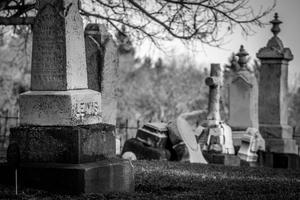Ukrainian Catholic Archbishop to Speak at Notre Dame Commencement
Archbishop Gudziak received the Notre Dame Award in June 2019, and the following November was a keynote speaker at Notre Dame‘s de Nicola Center for Ethics and Culture’s 20th annual fall conference.

Archbishop Borys Gudziak of the Ukrainian Archeparchy of Philadelphia will deliver the commencement address at the University of Notre Dame in May, the school announced on Wednesday.
Father John Jenkins, president of Notre Dame, said March 23, “We have previously honored Archbishop Gudziak for his work as leader of the Ukrainian Catholic University as a center for cultural thought, for his Christian witness and for the formation of a Ukrainian society based on human dignity. We now further recognize him as he speaks forcefully and eloquently in support of the Ukrainian people and in opposition to the Russian invasion of his ancestral homeland.”
“The students, faculty and staff at Notre Dame have demonstrated continuing solidarity with Ukraine over this past month, and I know that they will benefit from and appreciate hearing the words of Archbishop Gudziak at our graduation celebration in May.”
The commencement ceremony will be held May 15 at Notre Dame Stadium in South Bend. Archbishop Gudziak will receive an honorary degree at the event.
The archbishop was born in Syracuse, New York, in 1960, to parents who had moved from Ukraine. He was ordained a priest of the Ukrainian Archeparchy of Lviv in 1998, and in 2012 was consecrated abishop and appointed Apostolic Exarch of the Ukrainian Apostolic Exarchate of France. He oversaw that Church's elevation to an eparchy the following year, and remained there until he was appointed to Philadelphia in 2019.
When he moved to Ukraine in 1992, Archbishop Gudziak founded the Institute of Church History in Lviv, and then served as vice rector, then rector, of the Lviv Theological Academy, which is now Ukrainian Catholic University, of which he is president.
Archbishop Gudziak received the Notre Dame Award in June 2019, and the following November was a keynote speaker at Notre Dame‘s de Nicola Center for Ethics and Culture’s 20th annual fall conference.
At that November 2019 address, Archbishop Gudziak said there are some good things happening in the world, "and yet the times are not so good.”
"In fact, they're similar to...what it was in 1914 when the Western world was convinced that progress would lead us to great happiness. Then the massacres began. World wars. The genocides.”
He noted that for all of our technological and social progress, Americans are lonelier, more depressed and more stressed than ever. In Pennsylvania, one of the states where he serves, the opioid crisis has left people sick, dying, lonely and without hope.
“It's important to focus on friendship because no amount of material, educational, technological, industrial welfare can compensate for the relationships that we are called to,” he said.
Archbishop Gudziak said some of the most profound friendships he's seen are those he witnessed in Soviet Russia before it fell, and those he continues to witness in countries controlled by communism, although these friendships are not easy or without cost.
“In all of these countries that were or continue to be communist, where millions of people were killed, where the system killed systematically, people over generations developed a reflex to put on a mask, put up a facade, build a wall because the outside world is dangerous,” Archbishop Gudziak said.
Families are encouraged to inform authorities against each other in communist countries, “so people in the family don‘t say things, because you can’t trust. It becomes like a radiation.”
“You can‘t taste it, has no smell, no color, but it mutates the genes. There’s an extra fear chromosome. It‘s a reflex. You can’t control it. Two billion people have an added obstacle to cultivate profound friendship.”
And yet it was in these oppressive conditions in Soviet Russia that the Ukrainian Catholic Church, while it lost many members, grew deep roots and bonds of friendship among those that remained.
“(T)he Ukrainian Greek Catholic Church, which had about 4 million members in 1939, with 3,000 priests, was totally - on a visible level - liquidated,” Archbishop Gudziak said.
“In 1945-46 all the bishops were arrested, hundreds of priests with their families were deported to Siberia. The church was rendered illegal and it remained the biggest illegal church in the world for 43 years until 1989. And it was very reduced. By 1989 there were only 300 priests left,” he said.
“But what a community it was! Forged in that fire of persecution,” he added.
When he met the underground Church, Archbishop Gudziak said everything was stripped to the bare minimum - bishops had jobs as ambulance drivers or coal workers, there were no schools or churches or official institutions of any kind. The bishops didn‘t even know one another’s names, because it was too dangerous to tell someone your name in underground seminary.
“And yet they were profoundly friends of Christ, and it was an incredible, intense relationship of those in the underground,” Archbishop Gudziak said.
“The friendship was not just kind of a nice thing, it cost profoundly to be a friend of Christ in an atheist totalitarian system,” he said. “It cost to pass down the faith to your children. But the fruits are amazing.”
- Keywords:
- notre dame commencement address
- ukraine catholics
- university of notre dame
- Archbishop Borys Gudziak














